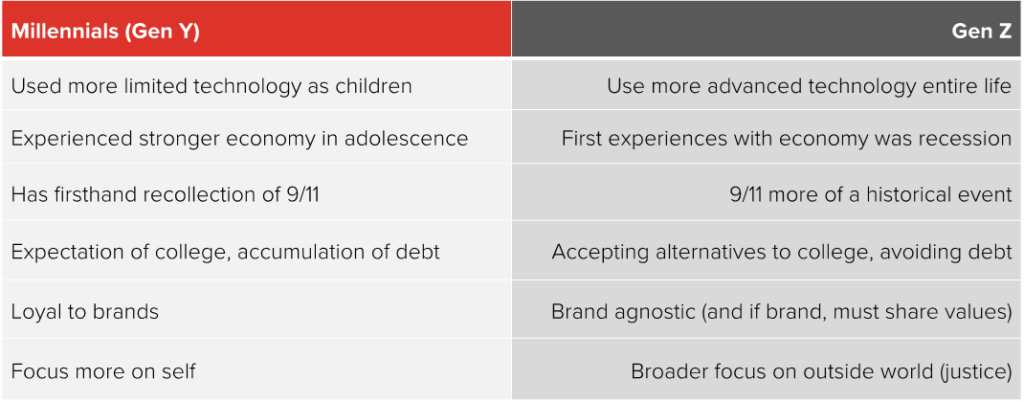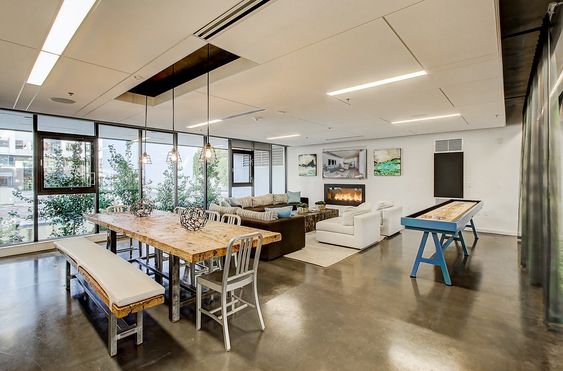Some of us remember the book, The Pig and the Python. Written in 1998 by David Cork, this guidebook of sorts promised to teach readers “how to prosper from the aging Baby Boom.” As marketers in real estate, we ran about concocting plans to woo downsizers to spacious urban condominiums paired with second homes in the mountains or at the beach. But following the 2007 financial crisis, a new generational shift was on the horizon. The Millennials had arrived.
U.S. Millennials comprise 72 million people born between 1981 and 1996. Ranging from 28 to 43 years old (in 2024), this demographic bubble has been the driving force for the past 15 years in all categories of real estate. In the multifamily rental space, we started planning large communities full of open-one-bedroom apartments and amenities that would make Disneyland seem underdeveloped. While Millennials’ influence on new multifamily development many be waning in 2024, we expect they will remain a major demand driver of new for rent and for sale real estate for at least the next five to seven years.
However, as they age up, partner up, and family formation becomes more prevalent, the generation that previously prioritized experiences over possessions is now likely driving SUVs full of soccer gear into garages of homes located in suburbs with good school systems while nursing a $7.00 pour-over single origin coffee and $15.00 slice of avocado toast. Now what?!

Hello Gen Z
Generation Z, born between 1997 and 2012, has more than 68 million members. Currently 12 to 27 years old, they are already bringing major influence to housing and will become the driving force in multifamily housing markets across the U.S. over the next ten years. Given a typical 18- to 36-month development cycle from site selection to completion (and often longer), projects delivering two to three years from now will be renting/selling to Gen Z residents – many who will be bumping up on 30.
We see savvy developers beginning to shift their focus to this next big demographic wave. But doing so successfully requires a deeper understanding of who these renters are, how they are different from prior generations, and, perhaps most importantly, what they want and don’t want, and how their values impact their decision making.
So how is Gen Z different?

Always connected
Well, let’s start with the iPhone. The first iPhone came out in 2007 when the leading edge of Gen Zers were already 10 years old. While Millennials adapted to this technology, Gen Z are growing up in an always-on, connected-from-the-palm of my hand, instant-information world. They’ve never known a time when they didn’t have instant-on connectivity. And, where older generations learned to use email and gradually shifted to texting, this generation has always texted and may not even have an email address (or rarely use it).
But technology isn’t the only place where these two impactful generations differ.
Gen Z is the most diverse generation yet, at 48-49% non-white, depending on the study (up from 44% in Gen Y). In addition to growing up in more ethnically and culturally diverse communities, they also grown up with a deeper awareness in differences in gender identity and sexual orientation. This awareness and experiences in confronting these issues (regardless of opinion) have made them more aware of differing perspectives and a greater openness to individual differences.
Each generation also reflects the outlook of their parents. Millennials were mostly raised by their optimistic and idealistic parents (Baby Boomers), while Gen Z was largely brought up by members of Gen X, known for their skeptical and perhaps, in some circles, cynical outlook on the world. Thus, Millennials tend to be optimistic, while Gen Zers are more pragmatic in their approach to the world.
Gen Z members weren’t even teenagers when the great recession of 2007-2008 gut punched the economy. They saw their family, or members of their community struggle without any context to draw from to make sense of the events. As a result, as adults they are budget conscious and financially responsible. Where Gen Y tends to be drawn to products or services that give them an enjoyable or entertaining experience, Gen Z is more influenced by what will be practical in their daily lives. Gen Z tends to stay well within their means, spending only when they feel the value will match or exceed the price.
Gen Zers tend to focus more on smaller, more intimate groups of friends, rather than wider circles of acquaintances – reflecting both their Gen X parents and, to some extent, the impact of the pandemic on modes of socializing.
Gen Z members are also very focused on issues of environmental sustainability, and social diversity and inclusion.

All of that said, Gen Z is thought to be the most financially motivated generation to date, as well as the most educated. Many of their Gen X parents heavily scheduled their time with every type of lesson and educational opportunity to help them get ahead early in life.
Unfortunately for Gen Z, the leading edge of the generation came into adulthood during the global pandemic. The isolation of the pandemic influenced the generation with what may be long-term impacts: a sense of insecurity and, in some cases, challenges with in-person social skills and experiences.
So, what does this mean for multifamily development?
As we look ahead to the next wave of design and planning for future Gen Z targeted communities, we have a few initial thoughts to share.

Flexible community room
We know that Gen Z is more price conscious and that their choices are anchored in logic. When Gen Zers shop for apartments, they will make a practical and pragmatic assessment of a building’s amenities and measure their perceived usage against the cost to live in the building. They’ll ask themselves, “Do I really need a pet park, a large fitness center, or a commercial teaching kitchen?” Depending on the individual, they might well value some amenities but not others: “A fitness center allows me to drop my gym membership and save money. A community space with programming supports my need to meet other people in a low-pressure way. But will I ever use a music practice room, a theater or a gaming space?”
It’s hard to put an entire generation into one bucket and say that each person will value amenities in the same way. They won’t. But what we can do is change our development approach and appeal to the values of this next generation. We can develop communal living experiences with practical features and benefits versus creating the ultimate amenity checklist, “next-best-thing” building. Gen Z wants quality over quantity. Their checklist is different.

Sustainability
They’re also likely to be more attracted to buildings where the developer has invested in the apartments themselves, as they will likely want to spend time within their own four walls. With their propensity to save their earnings instead of accumulating belongings, Gen Z might also find furnished or semi-furnished apartments more attractive than their predecessors. Gen Z will see that there is little to be gained from purchasing new furniture to fit in each apartment that they rent, as those items then become disposable (and even more of a hassle to dispose of).
Their interest in sustainability points to an increased focus on such issues as waste reduction, recycling and composting, energy and water efficiency, volunteer work parties, etc. Their focus on diversity and inclusion points to gender neutral restrooms and signage, promotion of LGBTQIA+ groups and events, efforts to address equity, etc.
In urban areas, transit and car-/bike-/scooter-share programs may convince pragmatic Gen Z to sell their car, if they already own one.
In the near future, developers will need to cater to split personalities – the trailing end of Gen Y (Millennials) and the growing influence of Gen Z. But as Millennials continue to age into family formation, Gen Z’s needs, desires and unique approach to their lives will begin to dictate how successful multifamily buildings are designed and how they operate.
Thinking about a new development? Would you like some more insight into the needs and wants of Gen Z? Give us a shout. We’d love to support your success!